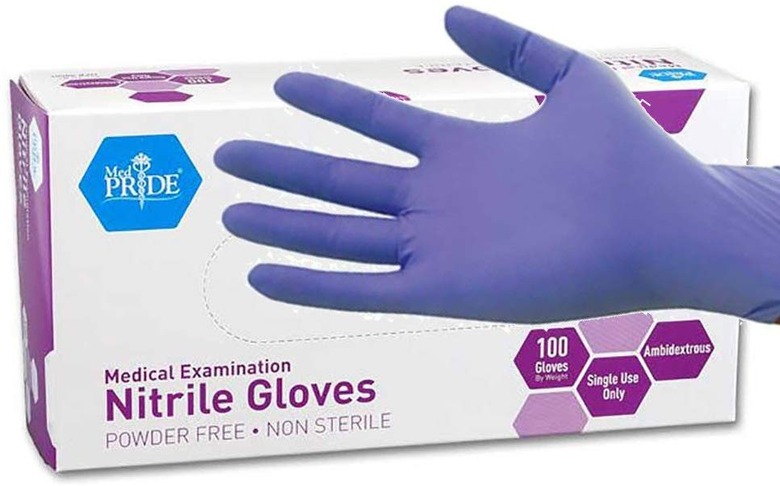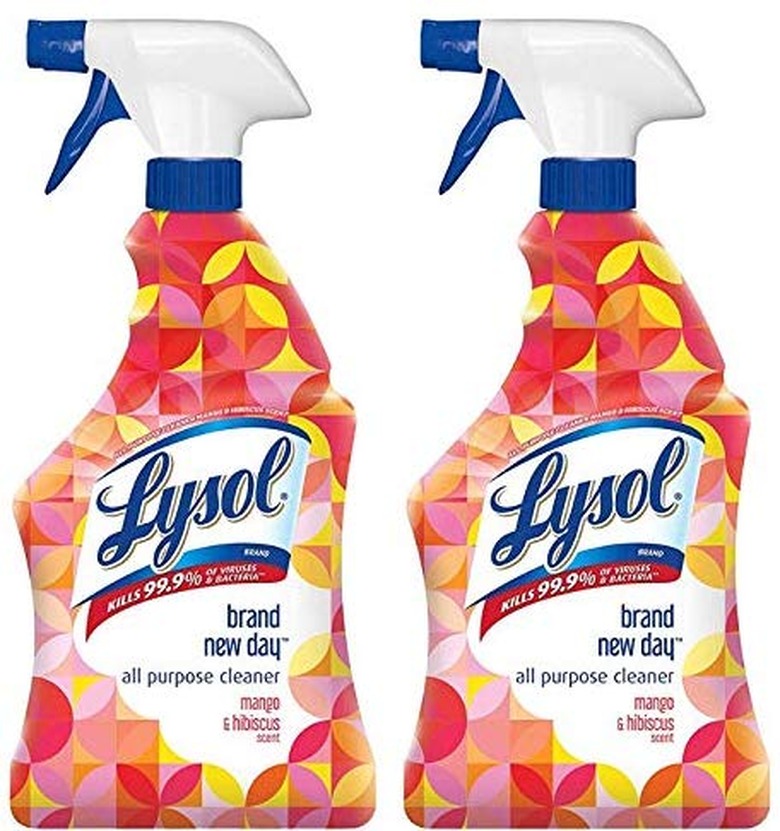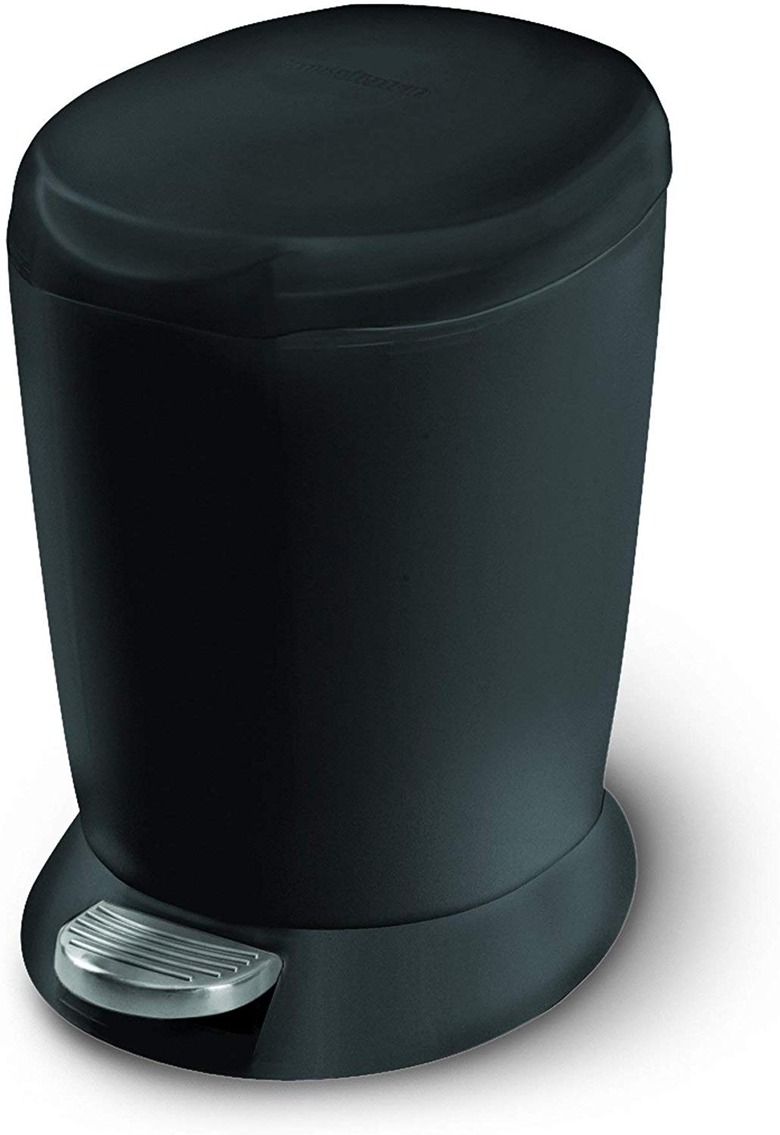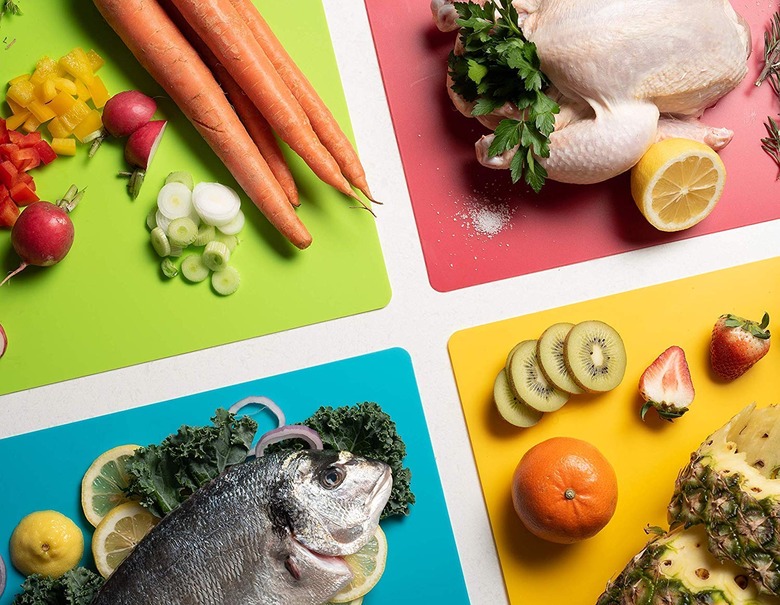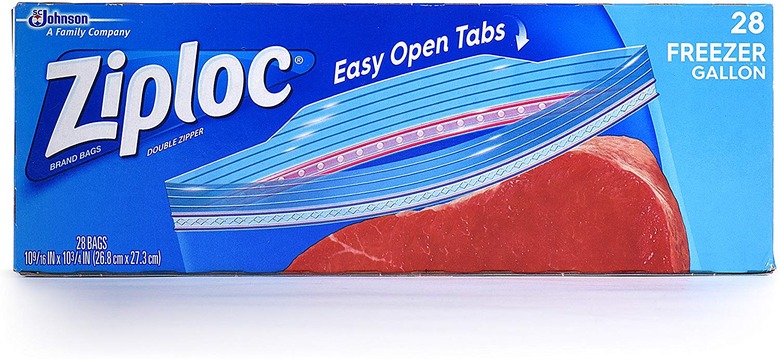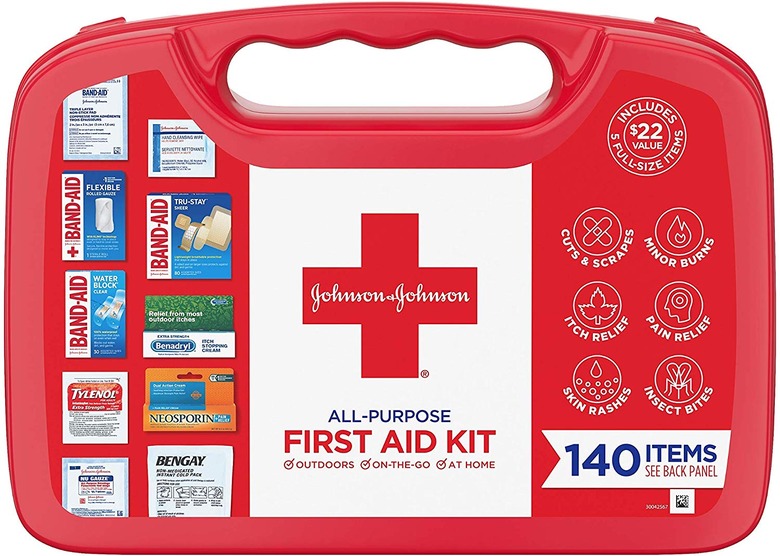A Few Essentials You Should Have At Home In Case Of A Health Emergency
We may receive a commission on purchases made from links.
With more and more stories of empty shelves where there once was bottles of hand sanitizer — and upsurges in prices for hand sanitizer on Amazon — we've been thinking a lot about what we should stockpile in case of a health emergency, not just in our pantries but in terms of cleaning and bathroom supplies as well.
Here are a few suggestions for the major items to keep at home in case you or a loved one gets sick and quarantined.
1. Purell Advanced Hand Sanitizer Naturals with Plant Based Alcohol Pump Bottle, $1.99
For starters, the Centers for Disease Control and Prevention recommends washing your hands for at least 20 seconds — and to do it often throughout the day. If you can't find a place to wash your hands but have recently coughed or sneezed, the CDC suggests "an alcohol-based hand sanitizer with at least 60% alcohol." (Although the best course of action is always washing your hands). You can also create your own hand sanitizer using this DIY tutorial.
2. MedPride Powder-Free Nitrile Exam Gloves (pack of 100), $15.99
If you live with — or are a caregiver for — someone with coronavirus, the CDC recommends a few precautionary measures. If you come into contact with fluids from the person, wear disposable gloves as well as a disposable face mask.
3. Lysol All Purpose Cleaner (pack of 2), $13
Although there's no specific household cleaner that the CDC recommends, the organization still emphasizes that it's important to clean "all 'high touch' surfaces, such as counters, tabletops, doorknobs, bathroom fixtures, toilets, phones, tables, and beside tables." And you should clean them every day if possible when living with or taking care of someone who is sick with coronavirus.
4. Simplehuman Compact Plastic Round Bathroom Step Trash Can, $14.97
According to the World Health Organization, it's important that you "throw tissue into [a] closed bin immediately after use" to protect others. This might seem like a no-brainer, but it's not a bad idea to take stock of your trash cans throughout the house and see if there are any that you can replace with one that includes a lid (like the small one near your desk or in your bathroom, for example).
5. Bellemain Extra Thick Flexible Plastic Cutting Boards, $9.75
The WHO also recommends keeping food safety in mind. That means using "different chopping boards and knives for raw meat and cooked foods." An easy way to do this is to buy color-coded cutting boards to make sure you keep everything separate.
6. Ziploc Gallon Freezer Bags (pack of 28), $4.99
A pack of gallon-size freezer bags can come in handy for obvious reasons, like stashing food in the freezer, but they're also great for a few other practical needs. The CDC recommends them in emergency kits for your diaper bag, so you can have somewhere to place dirty diapers. They can also be used for dirty clothes.
7. Johnson & Johnson All-Purpose Portable Compact First Aid Kit (140 pieces), $11.97
If you don't have one already, we suggest investing in a first aid kit — even if it's a portable one like this one. The set includes Tylenol, band-aids, Neosporin, and more.
